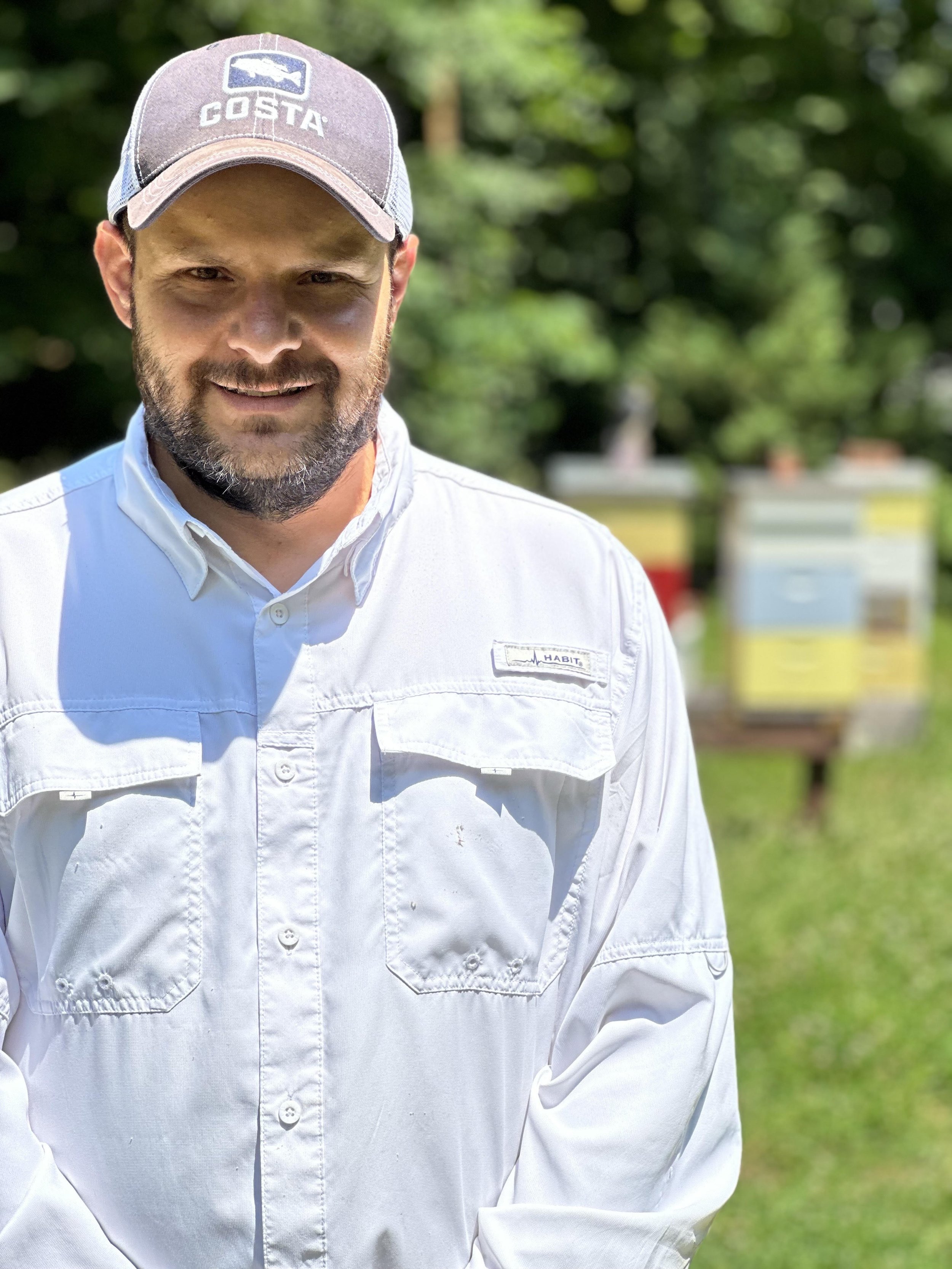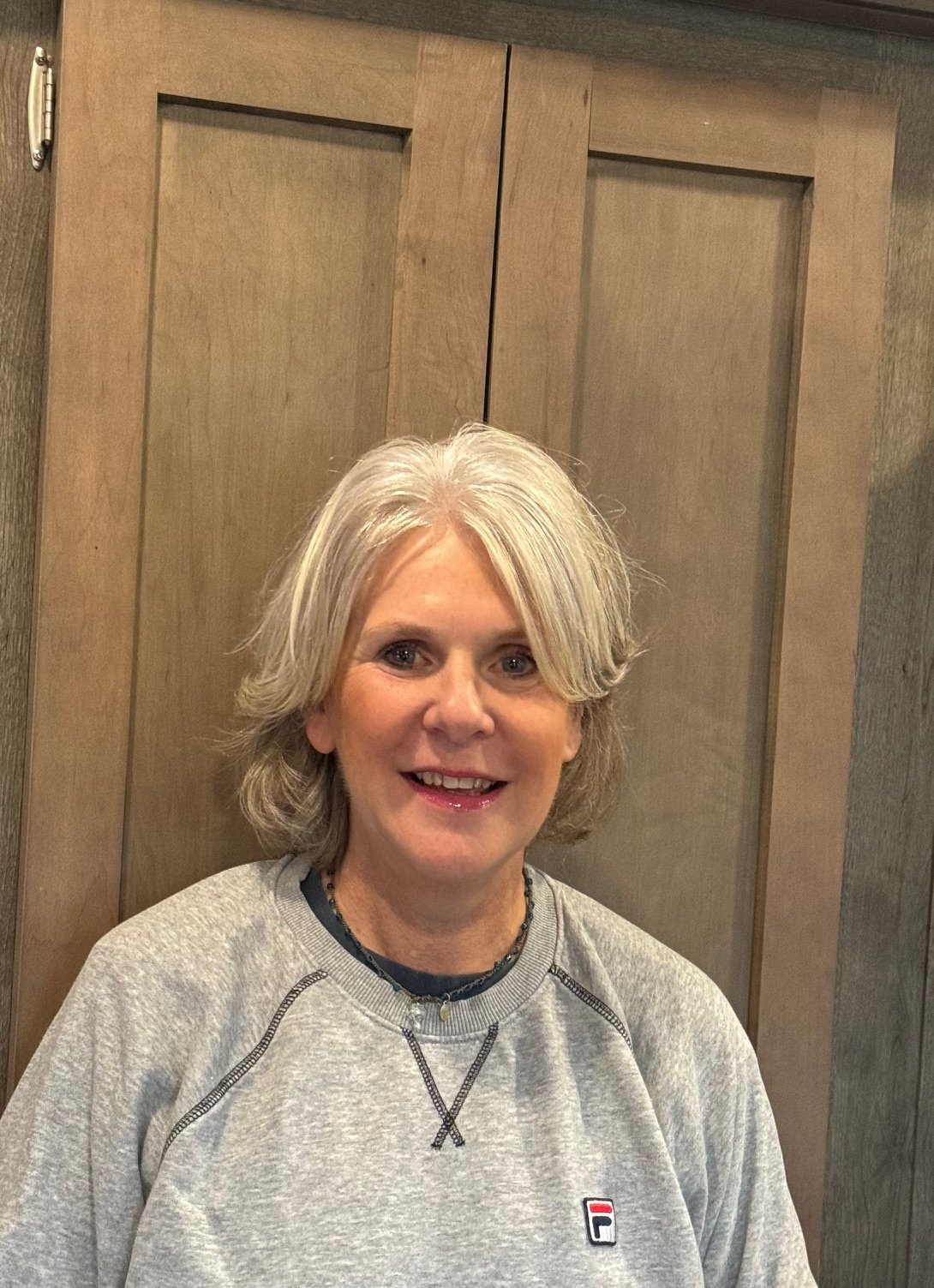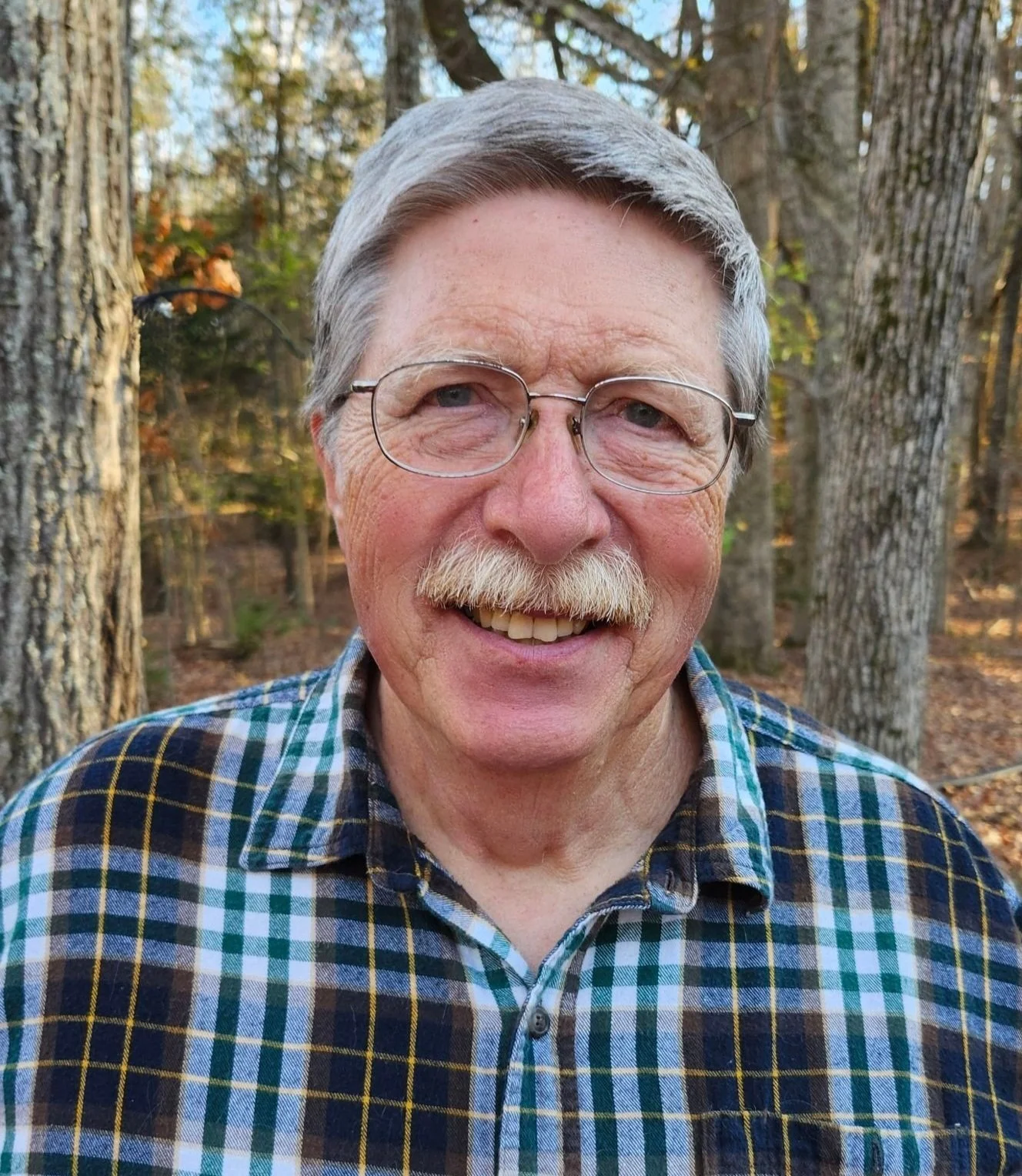Meet Our Advisors and Club Leadership
Greg Manning, President
Northwestern Powhatan | <25 hives | Manages for honey production and self-sustainability (limit the need to purchase queens, bees and woodenware)
I started Beekeeping with equipment I received through VDACS 2019 Beehive distribution program and a package I picked up in early March 2020. This was during the peak of COVID and I found little assistance and therefore have a passion for helping others through those trying times of being a beginning beekeeper.
I attempt to limit the treatment of my bees using natural and organic treatment methods but am not treatment free. In my 12 to 24 hives, I use OAV to treat mid-summer and winter, as needed to manage mites. Although I never planned to be a beekeeper or sell honey, my success with and enjoyment with raising and catching them in my retirement, has led me to forming Manning Hill Ranch and selling my extra honey through the business. I have produced just over 500 lbs. of honey for the last years.
Manning Hill Ranch has an organic garden where many of the colonies reside, 18 acres of mixed-use land with forest, horse pasture, a pond and is within bee flying distance from the James River, creating a great environment for our valued bees. This assisting us in winning the famed HBA honey tasting contest in 2023.
I constantly look for and study and evaluate new ways of managing bees, promoting honey production, increasing awareness of the value of honey for our health and wellbeing, as well as the benefits and challenges of becoming a beekeeper.
Spencer Evans, Vice President
Powhatan | > 100 hives | Manages for honey, queens, and nucs
I took the Huguenot Beekeepers’ beginner class in spring 2021 and started with two Nucs that year which I nurtured into full-size hives and successfully overwintered.
In 2022, I expanded my apiary to six colonies, yielding an excellent honey crop. In spring 2023, we established outyards to grow our apiaries significantly. We expanded from six to 60 colonies by winter, and successfully overwintered, starting 2024 with 59 hives. Since then, our numbers have continued to grow.
In January 2024, I launched Evans Honey Company. We produce premium honey, which won first place in the 2024 Huguenot Beekeepers Association honey tasting contest. I regularly monitor my colonies for mites, and primarily treat with oxalic acid vapor as needed.
Phyllis Link, Vice President
Western Powhatan | <10 hives | Manages for honey production
I started my beekeeping journey 5 years ago by taking the Beginner Beekeeper course. My goal was to maintain 2 to 3 hives. However, once I got my first couple of hives, I was hooked and continue to maintain 5 to 8!
I have made plenty of mistakes but have learned much from each of them. I am currently certified as an Apprentice Beekeeper and am studying to obtain my Master Beekeeper certification. I love helping people find their joy with the bees!
Mindy Stark, Treasurer
Powhatan | 6 hives | Manages for growth and honey production
I started beekeeping in 2019 after taking the beginners beekeeping class in Farmville, VA and moving to Powhatan. I started with 2 hives, but the winters were not kind to my hives! After 3 years of not making it through a winter, my hives finally began to thrive. My hives have grown from 2 to now managing as many as 6. I have focused on both the growth of my hives and producing honey for my family's consumption.
I joined the Huguenot Beekeepers Association at the end of Covid to learn more about beekeeping and to stay current on the latest methods of bee management. This organization has allowed me to meet others who enjoy the same hobby. In 2024 I became a member of the HBA Apiary Committee, where I helped with the care, feeding and maintenance required within the club apiary. My bees are the perfect addition to my garden!
Jeanne Clunn, Secretary and Website Administrator
North Chesterfield | 2 hives | Manages for self-sustainability (doesn’t need to buy queens and bess)
I started beekeeping in the spring of 2023, going through the Huguenot Beekeeper’s Beginners Course. What started out as “I’m only having one hive” (I live in a neighborhood in Bon Air, after all) quickly became two with a goal to grow to about 7 this year.
Initially, I wanted to keep bees just to reduce the supply chain and have more control over my food. I now know that supporting a local beekeeper would have been a much easier way to accomplish the same goal ;) But, I fell in love with watching these fascinating creatures fly in and out of the hive, carrying pollen, and searching out the best flowers in the yard.
As a homeschool mom, I love allowing my kids to be a part of the process with our best memories to date being watching new bees emerge and watching the queen lay - both of which we saw during an inspection.
Ian Hemstock, Community Outreach Coordinator
Western Goochland | 5 hives | Manages for sustainability and moderate honey production
An English ex-pat, in 2012 I took advantage of a business opportunity to relocate into the United States, landing in Midlothian Virginia, along with my wife & our twin sons.
In early 2023 we took the beginner beekeeper class,and began our beekeeping journey with two NUCs from one of HBA’s hugely experienced Technical Advisors. “I’ll only have two” quickly turned into five and we plan to keep growing, whilst wanting to remain a backyard or hobbyist beekeeper. I am trying to maintain a treatment free apiary and have enjoyed the meditative, relaxing experience of keeping bees while supplying my family & friends with honey.
In early 2024, I volunteered to join our newly formed HBA Apiary Committee, and which gave me a great opportunity to learn from our experienced beekeepers and technical advisors. Volunteering for the Apiary Committee, actively participating in the Club, and joining our weekly Bee Breakfasts in Powhatan, are all activities I highly recommend for new and experienced beekeepers alike. Talking, sharing information and enjoying the companionship of some great people is an important aspect in our local beekeeping community.
Keith White, Technical Advisor
Western Powhatan | < 50 hives | Manages for queen and nuc production | Woodenware and equipment supplier
I live in western Powhatan and joined HBA in 2015. I got my first bees in 2016 and told my wife that I only wanted two colonies. So, I went into my first winter with nine and came out of winter with seven. Since then, the colony numbers have continued to grow. Now, I usually have between 30 and 40 colonies - most of them in 5-frame setups.
Although I have tried some purchased queens (Russians, VSH, etc.), most of the colonies in my apiaries are based off stock I have raised from swarms that I have caught. I'm a big fan of catching swarms from remote areas and put out 20 to 25 bait hives each year. I graft and raise queens from swarm-caught queens that have survived my treatment-free management style for multiple years. As for making honey, I'd rather make bees and do not manage my colonies to maximize the honey crop - 300 to 400 pounds a year is plenty.
In 2018, Doug Anderson (past president of HBA) and I started Honey and the Hive, selling a full line of beekeeping equipment and woodenware as well as nucleus colonies.
John Davis, Technical Advisor
Powhatan | ~ 100 hives | Manages for VSH queens, nucs, honey, and pollination services
I started beekeeping while in High School and took the University of Maryland beekeeping short course in the 60's. I have about 30 years of experience total and currently keep 80 to 125 colonies for the production of Nucs, Queen bees, and honey.
I raise VSH queens from John Harbo and VP queens instrumentally inseminated breeders. I am also a Virginia state Master Beekeeper and Secretary of the Virginia Beekeeping Teaching Consortium. My beekeeping operation uses minimal treatments on an as needed basis.
Allen Davis, Technical Advisor
Eastern Powhatan | 10 hives | Manages for honey production and to be self sustainable (doesn’t have to buy bees or queens)
I’ve been a proud beek since 2012. What started out as "I only want 2 hives" quickly turned into 8-12 colonies going into each winter season. After several lost colonies, I found that this was a much more sustainable model for me since I could leverage resources from stronger hives to help support weaker ones going into the winter months.
I normally use OAV to treat for mites after removing honey supers (June-July). I do alcohol washes to monitor mite loads through the late summer & fall and do further treatments, if needed. I do another OAV treatment in early winter during a broodless period. I also use several measures (natural & chemical) to try and control small hive beetles.
In a good year I will harvest 120-150 lbs of honey and am able to create resource hives from spring splits to use as needed throughout the season.
Bill Kimmich, Technical Advisor
Powhatan | <70 hives | Manages for honey production and queen rearing
I am a Virginia State Master Beekeeper with 15 years of experience and have been a member of Huguenot Beekeepers Association since its formation in 2010. I manage anywhere from 50-70 colonies per year and typically harvest 600-700 lbs of honey each year.
I produce nucleus colonies for sale in the Spring and raise queen honey bees in the Spring and Summer months. My favorite aspect about beekeeping is mentoring beginner beekeepers and educating the public on the importance of honey bees and pollinators.
Chuck Burden, Technical Advisor
Central Powhatan | Sideline apiarist managing ~200 honeybee colonies spanning 14 apiaries across Central, Southside, and Shenandoah Valley | Manage for honey production and pollination services
I have been an apiarist for 15 years. I was first introduced to beekeeping back in 1980 while working on a local 100-acre fruit and vegetable farm back home in NW Indiana. I quickly learned from a Master Beekeeper the art of beekeeping and started my first business providing pollination services to local farmers with 80 hives.
After college, 8 years in the US Navy, and starting my family, I picked up beekeeping again in 2014, with 10 hives my first year. Today, as a hobby, I’m considered a side-line beekeeper managing several apiaries across the state in seven counties with ~200+ hives producing ~8K-9K pounds of honey in a good year. I specialize in pollinations services, honey production and raising bees to replace yearly losses. I primary manage my bees using natural practices as much as possible and avoid manmade chemicals.
I have been a member (officer/adviser) of the Huguenot Beekeepers Association for the past 10 years. I helped establishing our first club/county community apiary in the area with a focus of providing hands-on training to new beekeepers. I also am a member of Hives For Heroes for the past 5 years and have sponsored several military active duty/veterans and first responders using beekeeping as a healthy transition from service.
Donnie Ware, Technical Advisor
Goochland | <50 hives | Manages for honey production
I started beekeeping with no experience in 2007 with two hives that I acquired after my Father-in-law past away he was also a beekeeper. The bees died out before spring so I ordered two packages of bees and started over. I have been keeping bees ever since.
I now have around 40 hives and produce 1200 to1800 pounds of honey on a good year. I have been a member of HBA since the beginning. Every year is challenging and a learning experience.











